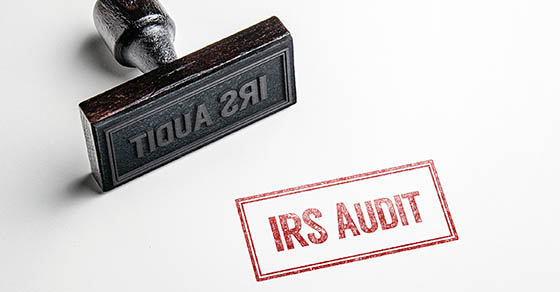The IRS is escalating its audit efforts, with a focus on large businesses and high-income individuals. By 2026, it aims to nearly triple the audit rates for corporations with assets over $250 million.
This increase is part of a broader IRS strategy, funded by the Inflation Reduction Act, to address noncompliance among wealthier entities.

Partnerships with assets exceeding $10 million will also face a tenfold increase in audit rates by that time as well.
However, the IRS does not plan to raise audit rates for individuals earning less than $400,000 annually. Small businesses are also unlikely to experience higher audit rates in the near future, as the IRS is prioritizing more complex tax returns from wealthier entities. For example, one area of focus is taxpayers who use business aircrafts for personal purposes. While companies can deduct the costs associated with corporate planes, personal use, including vacation travel, is not deductible.
Preparation is key
The best way to survive an IRS audit is to prepare in advance. On an ongoing basis, you should systematically maintain documentation — invoices, bills, canceled checks, receipts, or other proof — for all items to be reported on your tax returns. Keep all records in one place.
It also helps to know what might catch the attention of the IRS. Certain types of tax return entries are known to involve inaccuracies, so they may lead to an audit. Some examples include:
- Significant inconsistencies between tax returns filed in the past and your most current return,
- Gross profit margin or expenses markedly different from those of other businesses in your industry, and
- Miscalculated or unusually high deductions.
The IRS may question specific deductions because there are strict recordkeeping requirements associated with them — for example, auto and travel expense deductions. In addition, an owner-employee’s salary that’s much higher or lower than those at similar companies in his or her location may catch the IRS’s eye, especially if the business is structured as a corporation.
How to respond to an audit
If the IRS selects you for an audit, it will notify you by letter. Generally, the IRS doesn’t make initial contact by phone. But if there’s no response to the letter, the agency may follow up with a call.
Many audits simply request that you mail in receipts or other documentation to support certain deductions you’ve claimed. Only the strictest version, the field audit, requires a meeting with one or more IRS auditors. (Note: Ignore unsolicited emails or text messages about an audit. The IRS doesn’t contact people in this manner. These are scams.)
The tax agency doesn’t demand an immediate response to a mailed notice. The IRS will inform you of the discrepancies in question and give you time to prepare. Collect and organize all relevant income and expense records. If anything is missing, you’ll have to reconstruct the information as accurately as possible based on other documentation.
If you’re audited, our firm can help you:
- Understand what the IRS is disputing (it’s not always clear),
- Gather the specific documents and information needed, and
- Respond to the auditor’s inquiries in the most effective manner.
The IRS usually has three years to conduct an audit, and it probably won’t begin until a year or more after you file a return. Stay calm if the IRS contacts you. Many audits are routine. By taking a meticulous, proactive approach to tracking, documenting and filing your company’s tax-related information, you’ll make an audit more manageable. It may even decrease the chances you’ll be chosen in the first place.
We Can Help
If you have any questions about how to prepare for and respond to an IRS audit of your business, or would like to discuss individual tax planning strategies that apply to your situation, do not hesitate to contact your Rudler, PSC advisor at 859-331-1717.
RUDLER, PSC CPAs and Business Advisors
This week's Rudler Review is presented by Alyssa Monson, Staff Accountant and James Ray, CPA.
If you would like to discuss your particular situation, contact Alyssa or James at 859-331-1717.


As part of Rudler, PSC's commitment to true proactive client partnerships, we have encouraged our professionals to specialize in their areas of interest, providing clients with specialized knowledge and strategic relationships. Be sure to receive future Rudler Reviews for advice from our experts, sign up today !